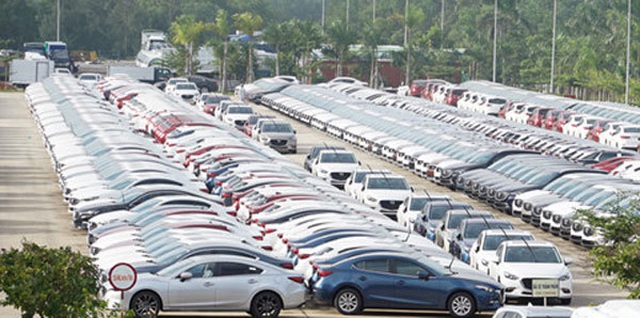
It is estimated that up to 50,000 cars are left in the firms' inventories. Many of them are cars made in 2019 and 2018. Some firms have to search for more warehouses to store the cars. The oversupply situation has occurred since late 2019 and got worse during the Covid-19 outbreak.
According to the Department of Industry, most firms have resumed operation after social distancing but at low capacity due to high inventories. Data from the General Statistics Office showed that a large number of the cars in inventory were assembled domestically. This has been the most difficult time yet for the local automobile industry. Moreover, domestically-assembled cars still have to compete with completely built-up imported cars from Thailand and Indonesia.
The government has reduced the registration fee for new domestically-assembled cars by 50% for 2020 and extended the deadline for excise tax payments and other fees incurred since March. Decree 57 has been issued to help domestically-assembled cars have lower prices. The decree will waive import duty for parts needed in car assembling that Vietnam can't make yet.
Meanwhile, various discount and promotional campaigns have been launched to attract customers. VinFast announced that they will pay all registration fees for customers who buy Lux A2.0 and Lux SA2.0 this year. Cars dated back do 2019 and 2018 have even higher discounts. Many firms have worked with banks to provide preferential loans for customers. For some small cars, customers don't have to pay interest for the first two years.
It is predicted that the industry will pick up in the last two quarters despite modest growth. If Covid-19 pandemic continues to develop complicatedly, the industry will be affected until 2021. Discount programmes will be rolled out constantly until Tet Holiday to help sell cars.
Finding customers and balancing monthly basic expenses are still the most difficult tasks. Many firms have to cut staff and operations in order to maintain businesses. Distributors and retail agents are also affected.
The automobile industry contributes 3% of the GDP each year with over USD7bn in 2019. Dtinews
 Car prices in Vietnam are predicted to continue falling with many discount programmes due to large inventory and slow sales." itemprop="description" />
Car prices in Vietnam are predicted to continue falling with many discount programmes due to large inventory and slow sales." itemprop="description" />